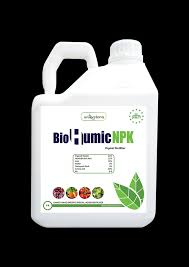
Nov . 06, 2024 08:16 Back to list
Nutrient Optimization for Strawberry Growth and Yield Enhancement Techniques
The Nutrient Needs of Strawberries Understanding NPK for Optimal Growth
Strawberries are among the most beloved fruits in the world, renowned for their sweet flavor and vibrant red color. They thrive in well-drained soil and require careful attention to their nutrient needs to produce healthy plants and bountiful fruit. One of the critical aspects of strawberry cultivation is understanding the NPK ratio—N for Nitrogen, P for Phosphorus, and K for Potassium. These macronutrients are essential for the growth, development, and overall health of strawberry plants.
Nitrogen (N) The Growth Booster
Nitrogen is vital for the vegetative growth of strawberry plants. It plays a crucial role in the synthesis of essential proteins, enzymes, and chlorophyll, which are necessary for photosynthesis. When strawberries lack nitrogen, they exhibit stunted growth, yellowing leaves, and reduced fruit production. This nutrient promotes healthy foliage, allowing the plants to photosynthesize effectively and produce energy for fruit development.
To ensure that strawberries receive adequate nitrogen, growers often utilize fertilizers that are high in nitrogen during the early stages of growth. Organic options like compost or well-rotted manure can also provide necessary nitrogen while improving soil structure. However, it's essential to avoid over-fertilization, as too much nitrogen can lead to excessive leaf growth at the expense of fruit yield.
Phosphorus (P) The Root and Bloom Enhancer
Phosphorus is another critical nutrient that supports the development of strong root systems and promotes flowering and fruiting. In strawberries, phosphorus is vital for energy transfer within the plant, as it forms ATP (adenosine triphosphate), which fuels various cellular processes. A deficiency in phosphorus can lead to poor root development, delayed flowering, and subpar fruiting.
To supply adequate phosphorus, growers often use fertilizers with a higher middle number in the NPK ratio. Bone meal, rock phosphate, or specific high-phosphorus fertilizers can be effective options. Timing is also important; applying phosphorus-rich fertilizers during planting or early growth phases ensures that the plants have access to this essential nutrient as they establish themselves.
strawberry npk

Potassium (K) The Fruit Quality Enhancer
Potassium is crucial for the overall health and quality of strawberry fruit. It helps regulate various physiological processes, including water uptake, enzyme activation, and photosynthesis. Additionally, potassium improves the quality of strawberries by enhancing their sweetness, color, and firmness. Adequate potassium levels can lead to healthier plants that are more resistant to diseases and environmental stressors.
To incorporate potassium into strawberry cultivation, growers can use fertilizers high in potassium during the fruiting stage. Organic sources such as kelp meal or wood ash are popular options that not only provide potassium but also help maintain soil health. Monitoring potassium levels is essential, as both deficiencies and excesses can negatively impact fruit quality.
Balancing NPK for Strawberry Health
To achieve the best results, strawberry growers must balance the NPK nutrients effectively. The ideal NPK ratio can vary depending on the growth stage and specific variety of strawberries being cultivated. A general recommendation for growing strawberries is an N-P-K ratio of approximately 5-10-10 during the early growth phase—this ensures sufficient nitrogen for vegetative growth and increased phosphorus and potassium levels for root development and fruiting.
Soil testing is an essential practice for optimal strawberry growth. By analyzing soil nutrient levels, growers can create a tailored fertilization program that meets the specific needs of their plants. This proactive approach prevents nutrient deficiencies and promotes vigorous growth, leading to higher yields and healthier fruit.
Conclusion
Understanding the NPK needs of strawberries is fundamental for any grower aiming for success. By carefully managing nitrogen, phosphorus, and potassium levels, growers can ensure that their strawberries thrive throughout the growing season. A balanced approach to fertilization not only maximizes fruit quantity but also enhances the overall quality of the strawberries, making them more appealing to consumers. With attention to their nutrient needs, strawberry plants can flourish, providing gardeners and farmers with the delicious, juicy fruit they strive to produce.
-
Premium 10 10 10 Fertilizer Organic for Balanced Plant Growth
NewsJul.29,2025
-
Premium 10 10 10 Fertilizer Organic for Balanced Plant Growth
NewsJul.29,2025
-
50 Pound Bags of 13-13-13 Fertilizer for All Plants – Bulk & Organic Options
NewsJul.28,2025
-
High-Efficiency 15-30-15 Granular Fertilizer for Healthy Crops
NewsJul.28,2025
-
15-30-15 Granular Fertilizer for Optimal Crop & Lawn Growth
NewsJul.27,2025
-
Premium 10 10 10 Water Soluble Fertilizer for Fast Plant Growth
NewsJul.26,2025
